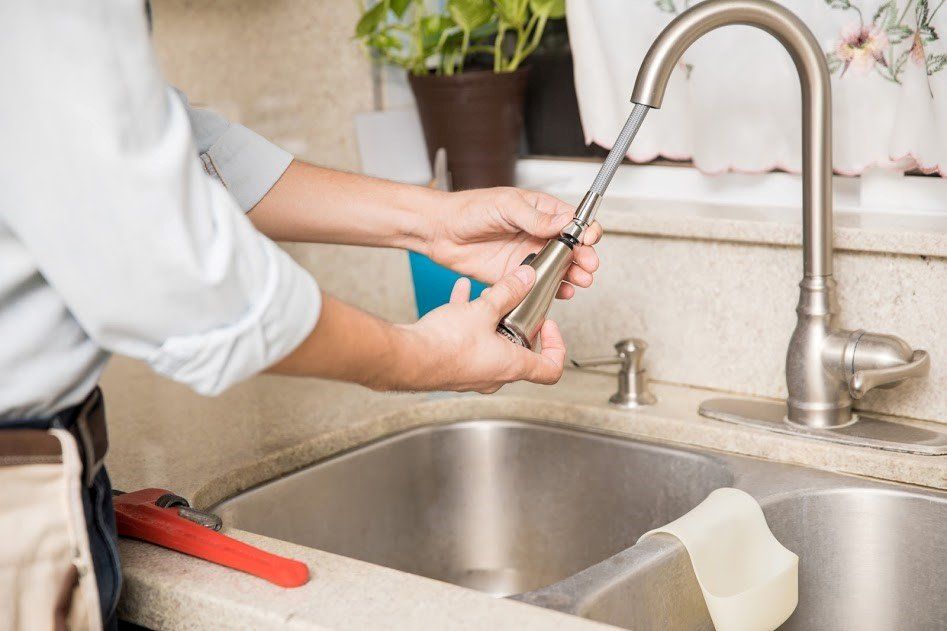
INSPECTIONS AND TESTING FOR PLUMBING AND WATER SYSTEMS
Whether you’re about to buy or sell a house, or whether you suspect something is wrong with the plumbing or septic in your current home, a professional checkup may be required. If you have a particularly elusive problem, or if you’re a homebuyer, several types of inspections and tests may be called for.
Here are some of the types of inspections and testing that your plumbing professional can perform.
1. Septic Dye Test
A septic dye test is commonly performed when someone is buying a home. The way this test works is that the professional places a dye substance in a drain, typically a toilet drain, and flushes it down. Then they inspect outside to see if any dye surfaces at ground level or in nearby surface water.
Although this test can provide valuable information, it’s still quite limited in scope. So you may wish to also pay for a more thorough septic inspection (called an open pit inspection) as well as a dye test if you’re buying a house.
2. Detailed Plumbing Inspection
A thorough plumbing inspection is useful when you want to rectify plumbing neglect, find things to fix before selling, or try to ascertain any issues before buying a house. Your professional plumbers in Reno will likely include a wide variety of inspection tasks in this. For example, they may:
- Check the fixtures and pipes for leakage.
- Test the drains to see if they work well.
- Check the water pressure.
- Look for telltale water damage.
- Make sure the plumbing fixtures function correctly.
- Inspect the water heater components, such as the tank, anode rod, and relief valve.
This is just a sampling of the tasks that could be on your plumber’s checklist for an inspection. Be sure to ask your plumber for a more complete list before the inspection begins, and ask for a full report after the inspection.
3. Septic Inspection and Video Line Inspection
A complete septic inspection, also called an open pit inspection, involves a lot more work than a dye test, and consequently has more diagnostic power. For instance, the septic inspection likely includes opening the tank and pumping it out to inspect the tank’s interior for damage.
With a video line inspection, the professional will place a small video camera inside a sewer or septic line and run video feed while the camera travels the length of the pipe. They will then examine the footage to see if any drain problems are visible in the video. This inspection can also locate where the pipe runs so your plumber can tell if it’s too close to a tree, water well, or other problematic element.
4. Well Inspection
This type of inspection is only relevant if the property has a private well. But in that case, it’s extremely relevant. A private well can become clogged with sediment or contaminated with bacteria. Motor problems can also mechanically compromise the well. During an inspection, you can expect your plumbing or well expert to check things like:
- The performance of the well’s pump
- The electrical components of the well machinery
- The mechanical workings of the tank and similar components
- The well head itself, ensuring no damage, flooding, or other issues
The inspector may also include some water testing in the well inspection or recommend that you have the water tested if you haven’t recently done so.
Every private well should have professional inspection and maintenance services performed on a regular basis. So whether you’ve had trouble with the well recently or not, schedule a professional inspection if it’s been a while since the last one — or if you have any doubts about the well’s condition.
5. Water Testing
Whether your water comes from a well or not, you need to know if it’s drinkable and healthy. You should have the water tested before you buy a house and periodically after moving in. And if you have a well, test the water at least once a year for common contaminants; talk to your plumbing or well expert about how often to test for other potential contaminants.
Even if you don’t have a well, water testing can ensure that the water supply is safe and isn’t absorbing anything dangerous, such as heavy metals, from the pipes.
All these tests and inspections may sound somewhat overwhelming, but you typically don’t have to pay for them all at once. The only time you’d likely need to have all (or most) aspects of the plumbing and water systems checked simultaneously is when you’re buying a house. In this scenario, knowing everything about the condition of these systems can be a huge advantage.
But whether you’re buying a home or maintaining your current home, an expert plumbing and septic contractor such as Easy Rooter Plumbing can help you discover which tests and inspections you’re likely to need — and which may be superfluous to your situation. Give us a call today to learn more about our services and how we can help.
